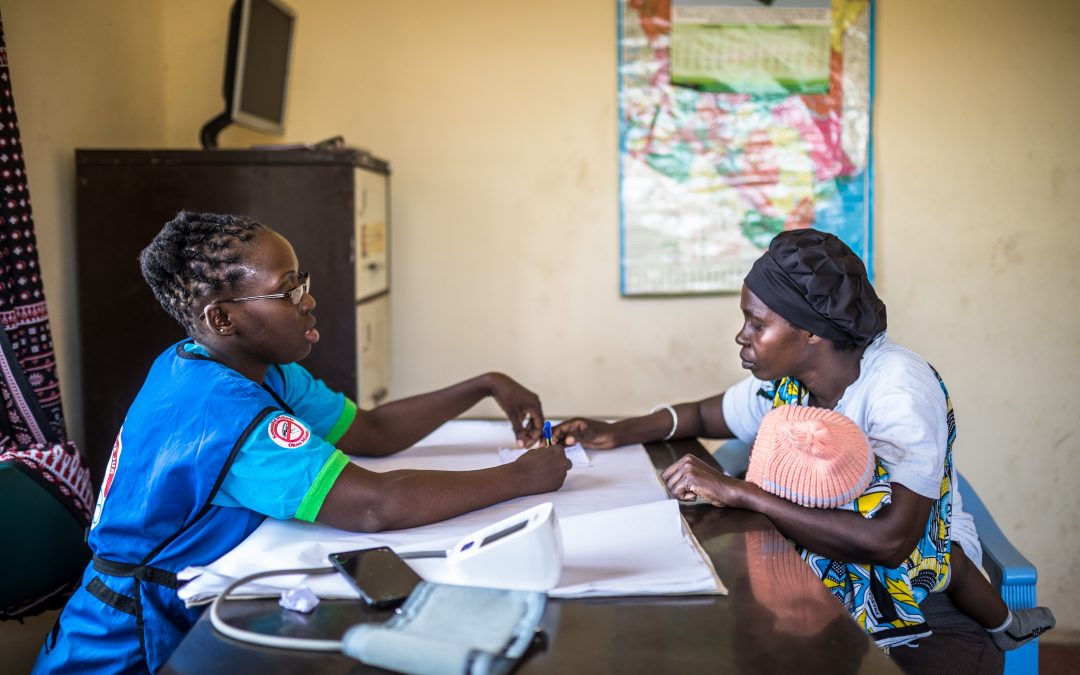Climate change, gender, and health; how can science for society support an intersectional approach to tackling inequalities?
Since 2002, World Science Day for Peace and Development has been marked on November 10 with the aim of showcasing the important role of science in society. This year’s theme, building climate-ready communities takes stock of both the COVID-19 and climate crises, with a UNESCO webinar held on November 5 bringing focus to the interlinked nature of health and climate with a panel discussion exploring solutions for building climate-ready communities and global health in a changing environment.
The recently published 2021 report of the Lancet Countdown on health and climate change: code red for a healthy future sounds the alarm on the severe health consequences that result from the delayed and inconsistent response of countries around the globe to climate change. The report reinforces that through responding to the dual crises, the world is faced with an unprecedented opportunity to accelerate action and ensure a healthy future for all.
How to tackle deepening inequalities in a warming world?
The Lancet Countdown report amplifies how the health impacts of climate change are both underpinned and amplified by gender norms and gender inequities. Speaking at the UNESCO webinar, Prof. Agnes Binagwaho cited Malaria as an example; how changing weather patterns such as droughts and floods are exacerbating transmission, with pregnant women and children first to suffer. Drawing on her experience in HIV & AIDS treatment, she underlined how it is essential that women and girls – often most vulnerable to the impacts of climate change – be part of both designing and delivering the response.
While there is an urgent need for data-centered, gender-sensitive responses to health challenges, data disaggregated not only by gender but other markers of marginalisation and vulnerability such as race and class remain scarce, and at best patchy. A recent study published by DSW, Poverty-related neglected diseases (PRNDs) through a gender lens (summarised in the short video below) explored both the prevalence and impact of PRNDs on women and girls, considering both biological susceptibility and non-biological factors. The report underlines that huge knowledge gaps persist on PRNDs’ impact on different sexes and genders, and how biases have formed that result in the development of tools and treatments that are often ineffective for those most at risk.
Science by and for women
Reflecting on her achievements, Prof. Binagwaho shared how she hopes her work will inspire young women scientists to believe that they can make a change. That their approach – “which is by nature more inclusive” – is invaluable to translating science to achieve benefits for society. Making sure that women and girls have full and equitable access to and participation in science not only expands the pool of talented researchers, but brings in fresh perspectives, talent, and creativity.
Our study, which focuses on research and innovation for PRNDs has highlighted that a holistic view on gender mainstreaming and gender analysis throughout the entire research & innovation cycle is still missing – and tackling this is key to ending the burden of PRNDs. Recommendations include ensuring women are part of leadership and decision-making within research teams; that both female and male sex be included in all phases of research and product development; and addressing the lack of pregnancy safety trials, and redefining concepts that define women as a ‘vulnerable population’, are all crucial for more gender-sensitive research. The current case of a lack of COVID-19 vaccine trials in pregnant people driving COVID-19 vaccine hesitancy should serve as an important reminder to us all.
As the whole world calls for better science to tackle the greatest challenges of our time, we must bridge the gender gap across all levels of society, ensuring women and girls are able to lead and shape a science agenda that serves not one, but all.

